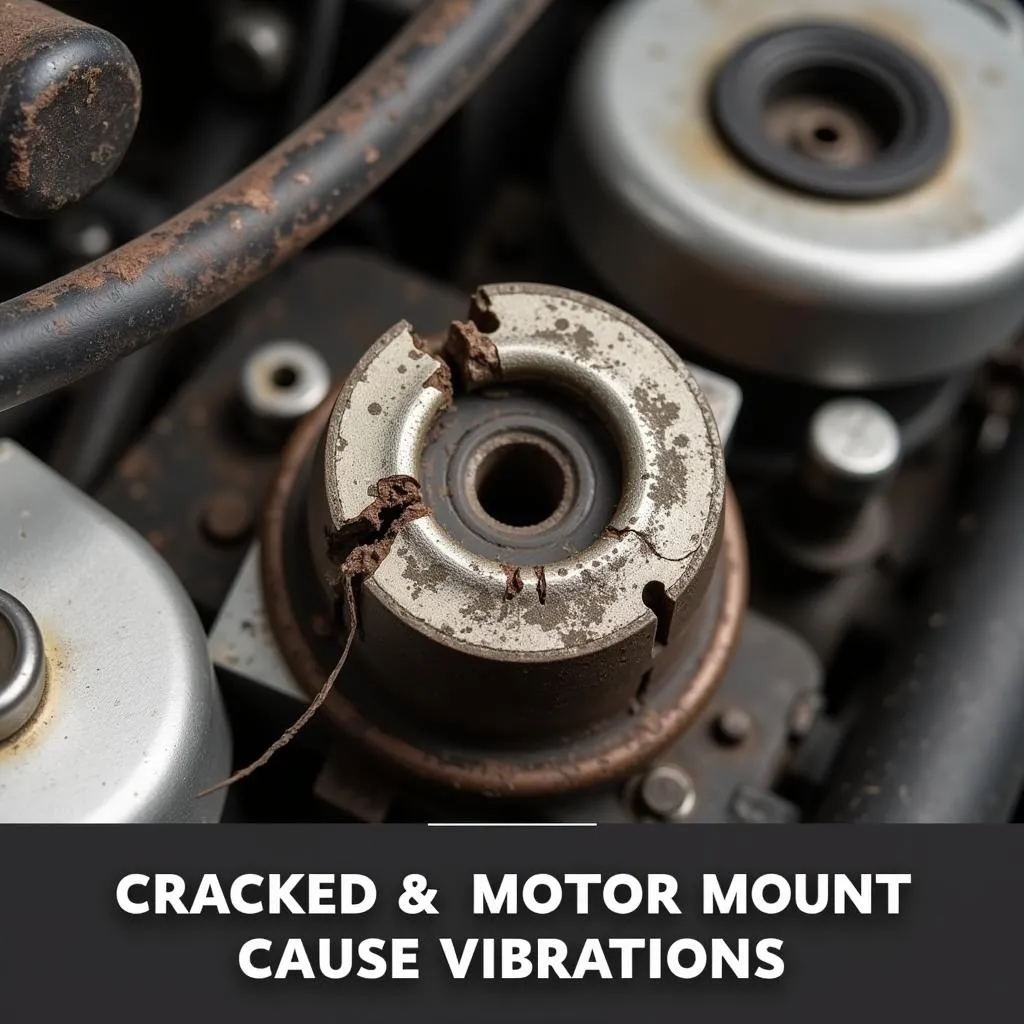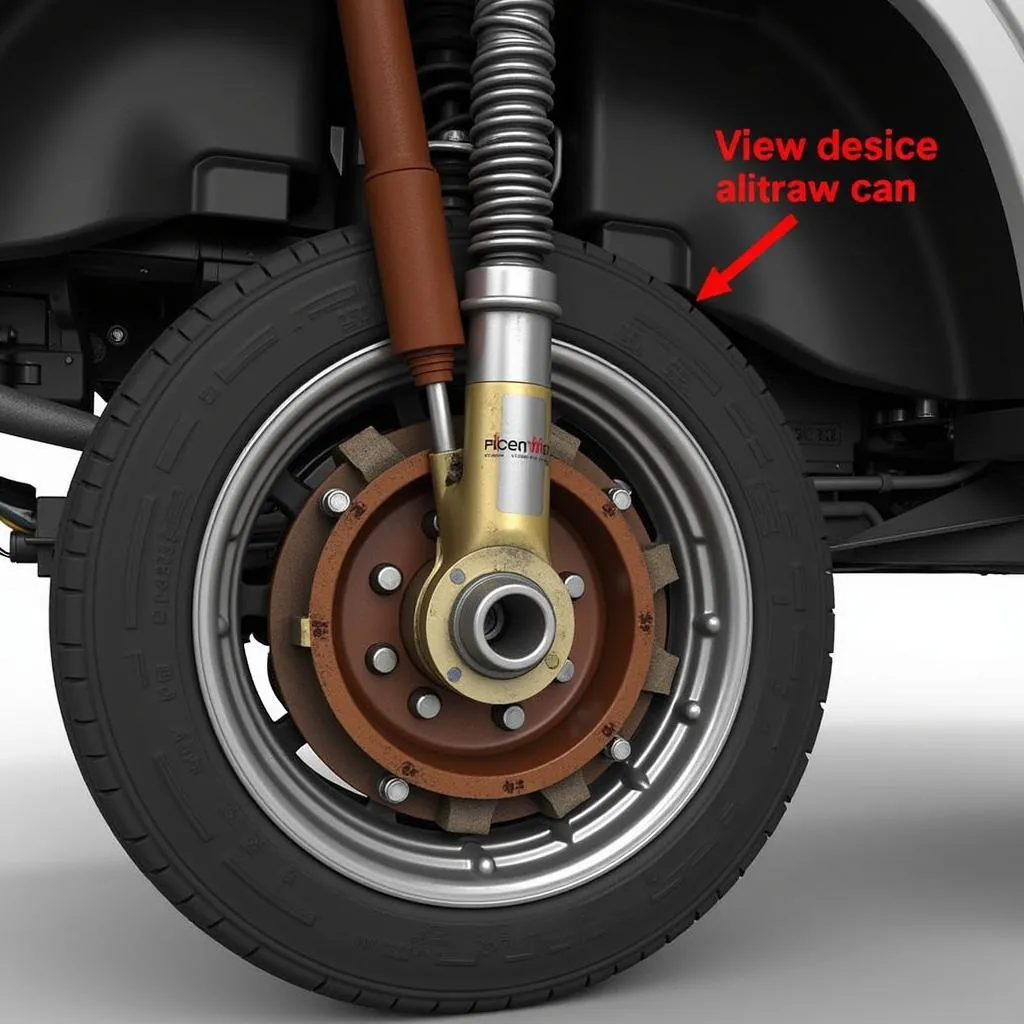Have you ever experienced a shuddering or shaking sensation in your car while accelerating? This unsettling feeling, often described as “my car trembles when I accelerate,” can indicate various underlying issues, some minor and others potentially serious. This article delves into the common causes behind car trembling during acceleration and provides insights into diagnosing and addressing this problem.
Common Causes of Car Trembling During Acceleration
Several culprits could be contributing to your car’s trembling when you hit the gas pedal. Here are some of the most frequent:
1. Worn Out Spark Plugs
Spark plugs ignite the air-fuel mixture in your engine cylinders, and worn-out spark plugs can disrupt this crucial process. This disruption can lead to misfires, causing your engine to tremble, especially during acceleration when more power is demanded.
2. Dirty or Clogged Fuel Injectors
Fuel injectors deliver fuel into the engine cylinders, and over time, they can become clogged with dirt and debris. Clogged injectors restrict fuel flow, leading to an uneven fuel-air mixture and, consequently, engine trembling during acceleration.
3. Faulty Ignition Coils
Ignition coils provide the high voltage necessary for spark plugs to ignite the fuel. A failing ignition coil can weaken the spark or cause misfires, leading to engine vibrations, particularly noticeable when accelerating.
4. Vacuum Leaks
Your engine relies on a precise balance of air and fuel for optimal performance. Vacuum leaks disrupt this balance, often causing a rough idle and trembling during acceleration.
5. Worn Motor Mounts
Motor mounts are responsible for securing the engine to the car’s frame and absorbing vibrations. Worn or damaged motor mounts can cause excessive engine movement, leading to noticeable shaking, especially during acceleration.
 Worn Motor Mount Image
Worn Motor Mount Image
6. Issues with Axles or CV Joints
Your car’s axles transfer power from the transmission to the wheels. Damaged axles or worn-out Constant Velocity (CV) joints can cause vibrations that worsen with acceleration.
 Damaged CV Joint
Damaged CV Joint
Diagnosing the Problem
Identifying the exact cause of your car’s trembling requires a systematic approach:
- Consider the Symptoms: When does the trembling occur? Is it only during acceleration, or is it present at idle as well?
- Check Engine Light: Is your check engine light on? This can provide valuable clues about potential issues.
- Professional Inspection: For a comprehensive diagnosis, consult a qualified mechanic, especially if you lack experience troubleshooting car problems.
Solutions and Repairs
The solution to car trembling depends entirely on the underlying cause:
- Spark Plug Replacement: If worn-out spark plugs are the culprit, replacing them is a straightforward and relatively inexpensive fix.
- Fuel Injector Cleaning: Cleaning fuel injectors can often restore proper fuel flow and resolve trembling issues.
- Ignition Coil Replacement: A faulty ignition coil typically needs replacement.
- Vacuum Leak Repair: Identifying and repairing vacuum leaks can be tricky but is essential for restoring proper engine function.
- Motor Mount Replacement: Worn motor mounts need replacement to secure the engine and minimize vibrations.
- Axle or CV Joint Repair/Replacement: Damaged axles or CV joints may require repair or replacement.
Preventing Future Issues
While some causes of car trembling are due to normal wear and tear, you can take steps to prevent or minimize these issues:
- Regular Maintenance: Adhere to your car’s recommended maintenance schedule for spark plug replacements, fuel system cleaning, and inspections.
- Quality Fuel: Using high-quality fuel can help prevent fuel system issues.
- Gentle Driving: Avoid aggressive acceleration and hard braking, as these driving habits can put stress on engine components.
Conclusion
Experiencing trembling in your car while accelerating can be unnerving, but understanding the potential causes and taking appropriate action can help you resolve the issue and prevent further damage. Regular maintenance and timely repairs are essential for a smooth and safe driving experience. Remember to consult a qualified mechanic for an accurate diagnosis and expert repair if you are unsure about tackling the problem yourself.